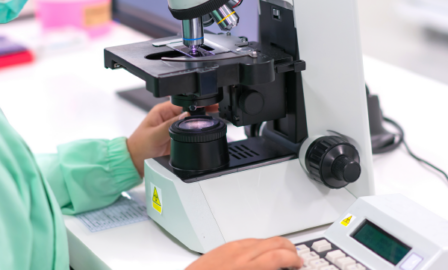IoT Applications in Life Sciences
IoT applications in the life sciences industry are already creating new opportunities for growth, efficiency, and innovation. In, Breaking Down the Major IoT Platforms on the Market, I explored some of the massive investments, platforms, and services the largest tech providers are already making in IoT. Within the life sciences space specifically, providers are bringing unique IoT applications to market that are purpose-built to serve the distinct operational and technological complexities of the industry. Here, I’m breaking down some of these providers and the differentiated product or service they’re bringing to the life sciences market.
Read More: The Internet of Things is Driving Market Growth
Armis is a security-focused IoT application that works with many life science customers. The company, founded in 2015, is focused on arming against ransomware and creating safe connections between devices, including but not limited to printers, computers, TV, tablets, monitors, lab equipment, MRI, ultrasound, and other medical devices. Armis predicts that 40% of smart devices are not seen by businesses, meaning they are unmonitored and unprotected. Protecting the information that flows in and out of medical devices is a huge concern as the medical field becomes more immersed in the Internet of Things. Patient confidentiality is at the top of hospitals and businesses concerns. Armis helps to create a secure connection between the necessary devices to create an efficient system, while also pairing it with continuous monitoring for potential threats to security.
TetraScience is a data integration and analytics platforms specifically for the life sciences industry. Their mission is to drive the next generation of medicines through data, as their platform helps R&D teams become more productive, compliant, and consistent. Their solutions include a data integration platform, laboratory monitoring, and laboratory scheduling. The company has partnered with leading vendors of scientific equipment including sensors, infrastructure, and instruments, to make them compatible with TetraScience software. TetraScience has worked with well-known clients including Roche. The partnership used TetraScience’s cloud-based dashboard to enable alerts, notification, live monitoring and management systems for Roche’s Molecular Diagnostics technology that identifies multi-drug resistant organisms without the need for time-intensive culture or sample preparation processes. TetraScience has been monitoring freezers, incubators and other instruments continuously since 2015 with hardware and cloud dashboards.
Tive is a small startup that focuses on IoT of the supply chain, that helps companies improve efficiency and meet regulatory requirements by providing solutions to monitor operations in real-time. They focus on clear visibility in all steps of the supply chain, decreasing loss in time and money. They create trackers, which monitor location, temperature, and shock that connect to Tive’s software application that gives users real-time insights. Tive has been featured as one of the top IoT startups and has raised $3 million in seed funding over the past two years.
Bigfinite, founded in 2013, is another cloud-based IoT application focused on the pharmaceutical and biotech manufacturing industry that partners with Amazon Web Services (AWS). The company uses Bigengine, a service as a software (SaaS) platform, which does not require new software or hardware to solve issues. The platform is used for predictive maintenance, overall equipment effectiveness, and cleaning optimization. In December of 2017, the company raised $8.5 million in a seed round of financing, which helped launch the new version of Bigengine (Bigfinite AI SaaS Platform for Pharma Manufacturing, v.1.5). This upgrade added a predictive maintenance, predictive overall equipment effectiveness, Golden Batch, energy efficiency and casualty detection solutions.
BriefTrace is a small Israeli-company founded in 2016 that uses blockchain in the supply chain to create a smarter and cost-effective environment for businesses with sensitive supplies, like pharmaceutical and food products. Their tracker, the Geo 2, gives clients real-time monitoring of temperature, humidity, light exposure, location, and more. Pharmaceuticals products have very particular shipping requirements regarding temperature, placement and light exposure, so these trackers are becoming more common in the supply chain of life sciences products. It is important for companies to know how quickly products are getting to their final destinations to see if they can optimize routes further. Another key piece of data from this device tells clients when supplies are damaged, or exposed to too harsh of environments, en route. This is important as businesses can avoid these locations to ultimately save money. In the past year, the company has worked with Perrigo, Mentfield Pharma, Swiss International Air Lines, and DSV Israel.
Organizations in the life sciences industry are just beginning to explore all the value IoT applications can bring to their business. Success in an IoT project will depend on a strong business case tied to measurable and manageable target outcomes – starting small enables a scalable IoT framework across the functional areas of your business. For now, it’s critical that business leadership continues to focus on the foundational principles that enable progress in IoT, including data governance, integrity, and management. For more information on our IoT service or if you’re interested in building an IoT proof of concept or business case, feel free to contact us using the form at the bottom of this page.
Co-author and contributions by Emily Brice



